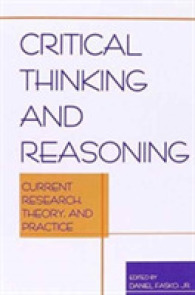Full Description
Finally, it presents proposals and recommendations for educational practices.The work advocates rethinking education as an essential component in ensuring the sustainability of human life in society - by proposing to go beyond the approach of education for sustainable development or environmental education.







